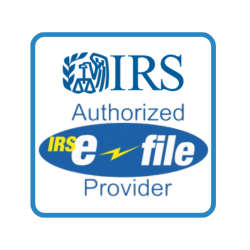Table of Contents
ToggleKey Takeaways
- The IRS uses property seizures to resolve your outstanding tax debt by taking hold of your personal assets
- You may face a property seizure if you haven’t paid what you owe or you failed to work out a payment arrangement with the IRS
- The IRS issues levies, including bank levies, to give the agency a legal right to take your property, which may include your real estate, car, bank accounts, or other assets
- What happens after your property is seized:
- The IRS sells your property
- You can request a seizure release
- You can provide proof of an economic hardship
- You can file a claim to get your property back
- The IRS may be required to release your seizure
- Avoid a property seizure by paying taxes on time, alerting the IRS right away if you can’t pay, and always responding to IRS notices immediately
IRS property seizures occur when a taxpayer owes significant tax debt. The agency may take hold of your personal property, like your house or car, to repay the debt, which is stressful and emotional for any taxpayer. The good news is the IRS won’t take this action out of the blue. Several steps are involved before a property seizure would occur in most situations.
Never ignore notices you receive from the IRS related to what you owe, as the problem won’t resolve on its own and requires your immediate attention. You may find yourself in a situation where the IRS is seizing your property, however, if you fail to act or repay what you owe for taxes.
Here is your guide to understanding how IRS property seizures and bank levies work, why your property could be seized, and the steps that take place when your property is seized.
What Are IRS Property Seizures?
You may face a property seizure if the IRS issues a levy against you. Levies occur when you have a tax debt you have not paid and you have failed to take proper steps to resolve your debt with the IRS.
The IRS will seize your personal property, like real estate you own, your car or boat, your financial accounts, or other assets. The agency can seize and sell this property, or take your cash, and use the profits to cover your debts.
The IRS will issue a Final Notice of Intent to Levy and Notice of Your Right to a Hearing (also called a levy notice) before they issue the levy or seize your property. Contact the IRS right away if you receive this notice or any notice related to your tax debt.
You can take certain steps to work with the IRS that don’t involve property seizure, including requesting an extension, applying for a payment plan, or applying for an offer in compromise. The latter option allows you to settle with the IRS to pay back an amount that’s less than the full amount you owe.
Why Your Property May Be Seized
The IRS will not randomly seize your property at will. Property seizure is generally considered a last resort when other options haven’t worked and you still have outstanding tax debt. All of these actions must happen before the IRS can issue a levy and take your assets:
You Received IRS Notices
First, the IRS will send you a Notice and Demand for Payment if they’ve assessed your tax and realized you still owe something. Then, they will send you a final levy notice at least 30 days before they issue the levy. Expect to receive these notices at your home or business address.
You Didn’t Pay the Tax You Owe
Some taxpayers may think filing their tax return is enough to keep the IRS off their back. However, owed taxes still need to be paid in a timely manner to avoid penalty or action from the IRS. You may receive a levy if you failed to pay what you owe and you didn’t work out another arrangement with the agency.
You Received a Notice of Third Party Contact
Another type of notice you’ll get from the IRS is the Notice of Third Party Contact. This document lets you know the IRS may contact third parties to gather information about your tax debt.
The IRS will take these actions before they ever issue a levy or seize your property. The only instance when this wouldn’t happen is in the case of a jeopardy levy.
A jeopardy levy may be issued if the IRS determines tax collection is in jeopardy, and the agency will conduct a jeopardy assessment, send an immediate notice, and issue the levy. This could happen if a taxpayer who owed money is going to leave the country or if they’re transferring assets outside the country, among other reasons.
Make sure to respond to notices and be open and honest with the IRS about your situation. Always talk to a tax attorney when you’re not sure what to do about your tax liability.
How IRS Levies Work
The agency issues an IRS levy to seize your property to repay your debts. This document legally allows the IRS to take your assets until your liability is taken care of. Bank levies in particular are used to seize what you have in your financial accounts, like your checking or savings account, to cover your tax debt.
A wage levy is used to seize wages from employers that would be used to compensate the employee with the tax debt. Retirement levies are used to seize retirement savings account assets.
Levies are typically issued using Form 668-W for levies on wages, salary, or other income, or Form 668-A for levies on property held by a third party, like a financial institution where the taxpayer holds their bank accounts.
What Happens After IRS Property Seizures
Facing an upcoming property seizure can be overwhelming and stressful. Actually seeing your property taken by the IRS feels catastrophic. Fortunately, you can take steps right away. Here’s what happens if your property is seized by the IRS:
1. The IRS Sells Your Property
The IRS will sell your interest in the property they seized. They calculate the minimum bid price, send you a copy of that sum, and give you a chance to evaluate and challenge the price based on the fair market value.
Then, the IRS will send you a notice of sale, post the listing publicly, and wait at least 10 days before selling the property. Any profits from the sale will be put toward your tax debt. The IRS will let you know how you can get a refund if there’s anything left over from the sale.
2. You Can Request a Seizure Release
You can also request the IRS releases your property if you can resolve your tax liability right away. You may be able to appeal their decision if they deny your request, and you can appeal before or after they seize or sell your property.
3. You Can Provide Proof of an Economic Hardship
The IRS may also release the seizure if they determine the seizure caused an immediate economic hardship for you. You will need to show the seizure prevents you from being able to meet your basic, reasonable living expenses.
4. You Can File a Claim to Get Your Property Back
You may be able to get your property back after the sale. You can file a claim against the IRS for up to two years from the date of the levy, after the proceeds from your property sale have been sent to the IRS. You can initiate a wrongful levy lawsuit, but you may only be able to get back whatever the IRS received in profit. This amount will likely be lower than what the property is actually worth.
5. The IRS May Be Required to Release Your Seizure
The IRS must release a property seizure if you meet all of these requirements:
- You’ve paid all the tax debt you owe
- The collection period ended before the seizure was issued
- You’ll be able to pay your taxes if the IRS releases the seizure
- You have an installment agreement that doesn’t allow the seizure to continue
- The seizure creates an economic hardship
- Your property’s value is more than what you owe, and releasing it won’t hinder the IRS’s ability to collect what’s owed
Remember you have options, even if you feel like you’ll never get out of the mess of property seizure. Contact a tax attorney right away no matter what step you’re experiencing in the levy and property seizure process. A tax professional can walk you through your options and next steps.
How to Avoid an IRS Property Seizure
Property seizure is one of the most aggressive steps the IRS may take to get a tax debt repaid. You want to avoid it as much as possible so you’re not putting your home, car, bank accounts, or other property at risk. Here’s what you can do to ensure you will never face an IRS levy or property seizure:
- File your tax return by the deadline each year
- Report accurate information on your tax return
- Pay your taxes as soon as they become due
- Request an extension if you need more time to file your tax return
- Pay as much as you can, and if you can’t pay everything, contact the IRS about your options to resolve the rest
- Look into your options for a payment plan, which allows you to make regular payments over time until your liability is resolved
- Apply for an offer in compromise in which the IRS will let you pay less than your full amount owed because of a financial hardship or your inability to pay
- Never ignore a notice from the IRS assuming it will go away
- Respond immediately to any notice the IRS sends you
- Always be open, honest, and proactive with the IRS if you experience any issue when paying your taxes or filing your return
The IRS will typically try to work with you if you can’t pay what you owe. It’s up to you to let them know of your hardship in a timely manner so they can work with you. Otherwise, make sure to always meet deadlines to avoid penalties. A tax expert can help you with any issue you’re facing, so don’t be afraid to get help if you’re not sure what to do about your tax problem.
Reach Out to Silver Tax Group for Assistance With Property Seizures
Don’t attempt to deal with an IRS property seizure on your own. Sometimes you may believe the IRS is issuing a levy in error, or you may just want to know your options for getting your hard-earned property back.
IRS levies are serious and have major consequences. You don’t want to put your home, money, or form of transportation at risk because of an unpaid debt. You do have options in these situations, especially if you can act fast and stay transparent. Reach out to an expert as soon as you have a tax issue or receive a notice from the IRS.
The team at Silver Tax Group is ready to help you with an IRS levy or property seizure. Our experts understand how the IRS operates and what you need to do to stay in good standing or deal with an issue in a timely manner.
Contact Silver Tax Group now to learn more about our solutions, including emergency tax services, audit defense, tax debt resolution, and consulting.














